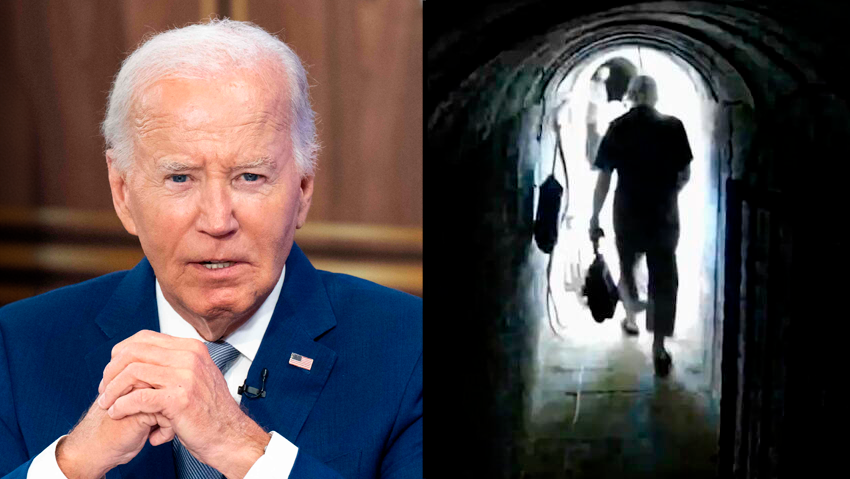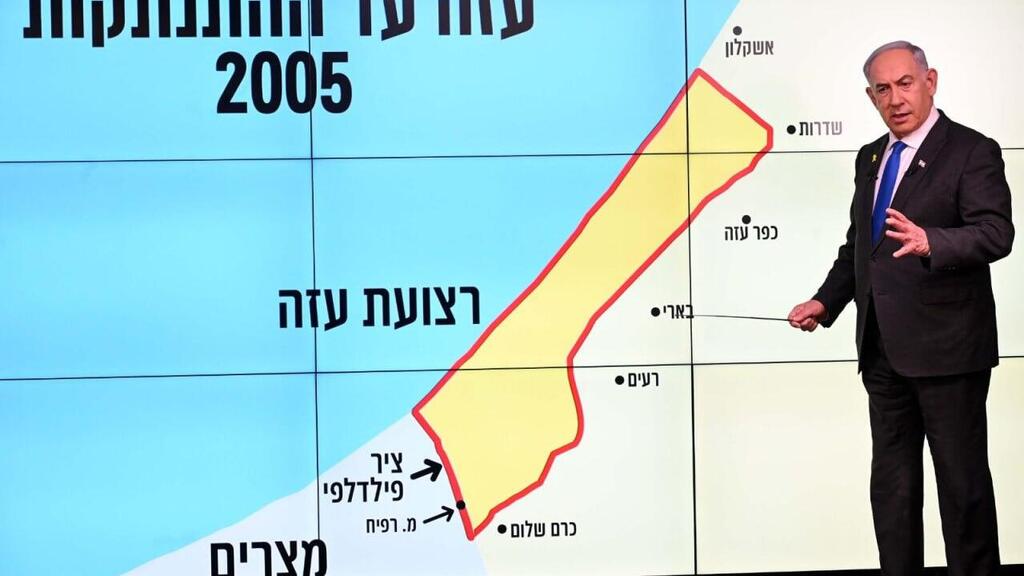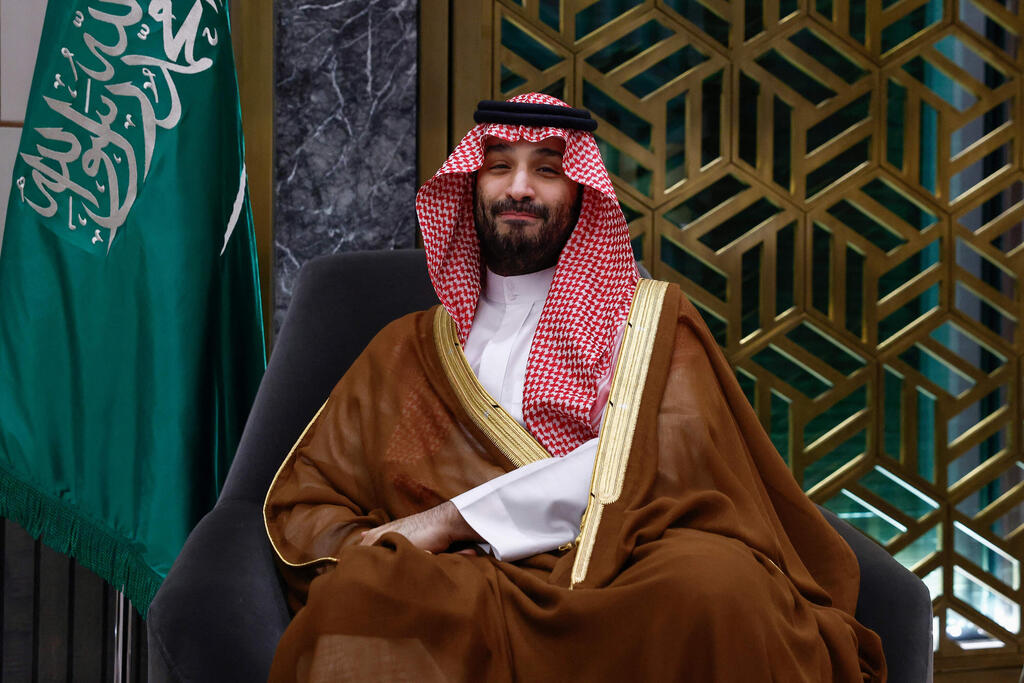Getting your Trinity Audio player ready...
Foreign officials involved in the cease-fire and hostage release deal and talks over normalization with Saudi Arabia said on Monday that Prime Minister Benjamin Netanyahu's insistence on an IDF presence on the philadelphi Corridor was not the only obstacle to a deal.
"Hamas made more demands after the execution of the six Israeli hostages and increased the number of Palestinian prisoners it wants Israel to release in the first phase of the deal, knowing the Israelis would refuse because it is unreasonable," they said.
3 View gallery


Biden longing for a deal to end his presidency
(Photo: IDF Spokesperson's Unit, SAUL LOEB / AFP)
The comments were made during the MEAD conference on U.S. relations with the Middle East held in Washington D.C. for the first time. Senior American officials spoke with mediators in Qatar and Egypt and asked them to increase the pressure on Hamas to back down from their demands.
The officials said they were frustrated and rejected the claim that Israel was at fault for failing to reach a deal. "When you look at it day by day, it seems the negotiations have failed but we will continue trying to make progress," they said adding that they had been traveling between Dohan and Cairo in the past two weeks, negotiating over the prisoner exchange. "You have a list of hostages and another list of thousands of Palestinian prisoners. Now six hostages were murdered and it's not like Hamas officials in Doha said that was done inadvertently. On the contrary. They use this murder as propaganda so all our focus is on Hamas. If Hamas, and they may do so, comes and says that the deal is acceptable and the last outstanding matter will pertain to the Israeli side - then that may be the story."
They said the matter of the Philadelphi Corridor is not mentioned in the proposal. "The deal states that Israel will withdraw from densely populated areas and there is a debate whether that is densely populated," they said adding the question of the strip of land near the Gaza border with Egypt is overstated and the main sticking point is the prisoners which had been settled a long time ago but then Hamas murdered six hostages and changed the conditions of the deal. They said the U.S. made it clear to Qatar and Egypt that they must bring Hamas back to that point or else, 'We're stuck."
The officials said that the Qatari and Egyptian mediators were confident that could do that. The U.S., Qatar, and Egypt might present a text everyone could stand by but they were not there yet. What had transpired in the past two weeks demonstrates who we are dealing with. "We agreed on the wording and Hamas changed the terms," they said adding that there was no inclination to make changes in favor of Hamas after the murders. "Hamas is a terror organization that holds hostages in tunnels. this is outrageous. But a deal is the only way to free hostages and achieve a cease-fire, opening up the possibility for a deal in Lebanon."
3 View gallery


Prime Minister Benjamin Netanyahu pointing to a map showing the Philadelphi Corridor in a press conference
(Photo: GPO)
The officials said Israel could have done things differently in some aspects but the focus must be on Hamas. In the end, they said the negotiations are with Hamas over the hostages and if they would accept the generous terms, and agree to free the hostages tomorrow, this would all be over.
"We were never in a situation when Hamas said yes and Israel said no. This is a false conspiracy. We've spoken with the families. Their desire and the thought that the door would be open only if Israel did something - is not where we are," they said adding that at the end of the day, all Hamas must do is free the hostages.
Regarding normalization between Israel and Saudi Arabia, officials stated that "the Saudis have made it clear they cannot move forward without a ceasefire in Gaza." According to them, "The possibility of a deal is right there, and it is not only in Israel's interest but also in the interest of American national security. There are still many things that need to be done. It anchors the status of the U.S. in the Gulf and reduces the likelihood of a long-term military confrontation. President Biden has made it clear that he is committed to this."
On Iran, the officials said that they did not doubt that the regime would eventually fall. and that sanctions must be imposed and diplomatic efforts made.




